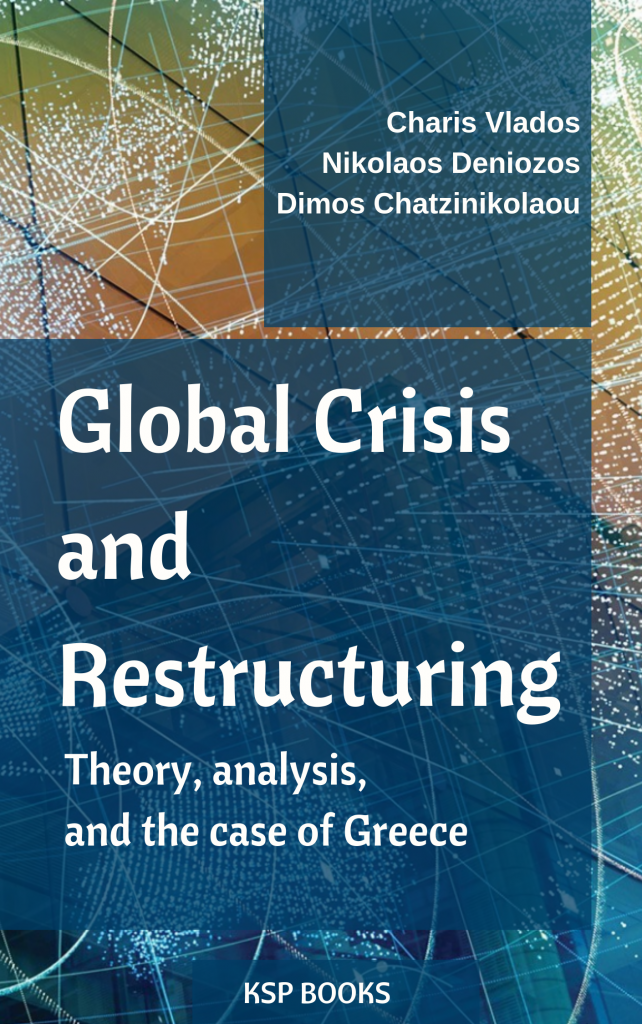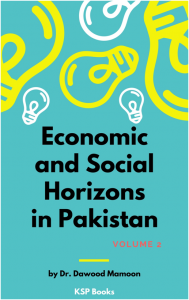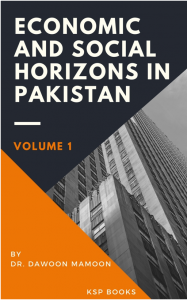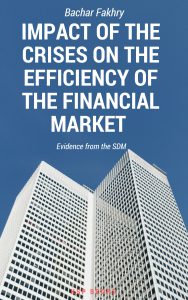Global Crisis and Restructuring
Synopsis
This book examines the global restructuring since its appearance from the late 2000s to the present. It tries to describe and explore the fundamental dimensions of the phenomenon of the current crisis and repositioning of the global socioeconomic system by following an analytical perspective that exceeds a “conjunctural” perspective. It counter-proposes a view of examining the contemporary historical configurations of globalization dynamics in structural and evolutionary terms. Finally, it considers that a valid perception of the current global restructuring requires the simultaneous co-examination of adaptation, innovation, and change management of the partial socioeconomic organizations, sectors of economic activity, and overall socioeconomic systems, at all the “organically linked” levels of space: local, national, international, and global.
This book includes the following chapters that approach the phenomenon of global restructuring from converging perspectives:
1. An evolutionary approach to the global crisis
This chapter focuses on the structural and evolutionary examination of the current global crisis and restructuring of the global socioeconomic system. It supports in terms of methodology that every global crisis analysis must perceive the historical and evolutionary character of the dynamics of global socio-economic space from a unifying perspective. It suggests that all the dynamic dimensions in the world’s configuration—economic, technological, social, and geopolitical—should be examined together, in their dense dialectic co-adaptation and co-evolution. The multi-faceted crises and adjustments inside every socioeconomic system are both the products and the producers of globalization’s overall trajectory in a co-evolutionary course; while contemporary capitalism, respectively, intensifies the dialectic reproduction of the global interdependence unceasingly. This crisis condition, therefore, is sustained, nourished and reproduced by the absence of a “new wave” of innovations, throughout all the levels of socioeconomic activity, and it requires the installation and assimilation of new effective change management mechanisms in order for any socioeconomic system to escape from it. Arguably, the challenge of building a new global developmental trajectory engages with all the levels of analysis and intervention: the individual and the collective, the material and the symbolic, the national and the local, the social and the economic, the microeconomic, the meso-economic and the macroeconomic, the cultural and the political. The only sustainable way out of the global crisis, as a result, needs a progressive adaptation to new evolutionary thinking to perceive the global crisis dynamics.
2. The current global socio-economic crisis and restructuring: from a conjunctural to a structural and evolutionary perspective
The current global socio-economic crisis and restructuring reshape the terms of the study of the global dynamics as a whole. A new generation of interdisciplinary socio-economic research on the matter in question seems to be progressively emerging in international literature. Against this background, any attempt to interpret the partial socio-economic phenomena, which relate to the crisis and the attempt to restructure globalization, can only be inadequate and ineffective since it fails to adequately approach the current dynamics of globalization in synthetic and holistic terms. In this direction, new interpretative approaches seem to intensify the need for conceptual syntheses between the different fields of socio-economic sciences, in an increasingly unifying perspective by extensively “borrowing”—directly and indirectly—methods and theoretical “lenses” derived from systems science, chaos theory, and evolutionary economics. In the depth of this methodological rearrangement, according to the position put forward in this article, it is crucial that an effort is made to move from a conjunctural to a structural perception of the crisis. Ultimately, the great challenge for the field of study of global dynamics nowadays is the transition from the methodological principles of the traditional mechanistic interpretative method to a coherent and integrated evolutionary socio-economic perspective.
3. Global crisis, innovation, and change management
The “crisis of capitalism” is not, of course, an unprecedented discourse in the evolution of economics and the investigation of economic realities. In the Neo-Schumpeterian approach, crises constitute necessary evolutionary steps, intrinsically linked with breaking “moments” and change. However, what makes the current crisis different, and subversive, is its ever-increasing structural complexity and evolutionary-dialectic substance. The mixing of cooperation and competition, on an organizational and macro-economic level, reproduces on a global scale the need for a reconsideration of underlying economic regulation mechanisms. The crisis tends to undermine and rapidly destroy the mechanistic relations and structures of all kinds and dimensions that have managed to provide profitability and effectiveness over recent years. In this context, the search for strategic innovation, constant organizational renewal and the diffusion of production oriented at high technological expertise, seem to progressively become the critical synthetic components for building a new development model. This chapter focuses on the introduction of a three-tier question which could be put forward as follows. First, it asks what the current global restructuring crisis is and what would be a new growth model that would lead to the exit of it on a global scale. Second, it addresses the issue of the required innovation mechanisms for a new model of inter-spatial restructuring and development. Finally, it analyzes why this new innovative direction is a prerequisite for building new types of effective change management mechanisms. The starting point of this approach is the position that any fragmented approach in the partial aspects of the triangle of global crisis, innovation, and change management, is now analytically misguided and practically powerless. Only an effort to systemically and evolutionarily understand the phenomenon, in its continuous dialectic structure, is now a sufficient condition for outlining the future development path of globalization at all levels of action.
4. Structuring an anti-crisis economic policy: The Greek experience
The objective of this study is to clarify the prevailing vague and sometimes misguided understanding regarding the articulation of economic policy, especially in the context of socioeconomic systems in structural crisis. The distortions of the economic policy keep reproducing and usually spreading because of three disorientating conceptual sources: a) the view of economic policy supposedly as a “de-ideologized” construction, or as a “de-technicalized” voluntarism, b) the view of economic policy supposedly as a “de-strategized” synthesis, c) the view of economic policy as a supposedly automatic, ungraded and timeless procedure. For a socioeconomic system to exit from its crisis, the interruption of this vicious circle of misconceptions is a prerequisite, towards the trajectory of a virtuous circle of understanding the meaning of the economic policy validly.
5. A new approach of local development in crisis conditions: Adopting a new local development policy to foster the local business ecosystems in Greece
The competitiveness of the Greek economy evolves, both in the present crisis and later on, according to the dynamic micro-level specific environments and transformations. This evolution depends on the SME’s abilities to claim a sustainable role in the new, competitive global environment, which is characterized by a continuous reshaping dynamic. Respectively, the goal of achieving development in the local scale becomes vital. This chapter attempts to define a new framework by proposing a new business ecosystems approach and policy, focusing on the implementation of a method for strengthening the SME’s “physiology.” This method proposes the construction of systematic knowledge and innovation creation and diffusion mechanisms, on a local scale; the Local Development and Innovation Institutes (LDI’s). Subsequently, this chapter analyzes regional data in Greece in order to highlight the most affected by the crisis region and to experimentally establish the Local Development and Innovation Institutes.
In conclusion, this book proposes a new perspective of understanding the global dynamics and moves towards a repositioned perception of the phenomenon of global crisis and restructuring in structural and evolutionary terms. Nowadays, according to this analytical proposition, “organic” and transversal innovations and the prerequisite change management mechanisms pose the central development question for the sustainable exit of the global crisis. Moreover, it seems that for socioeconomic systems in a structural crisis, such as the Greek system, a “conjunctural” perspective to confront the crisis prevails with insufficient results. The structuration of economic policy in Greece until now reflects this methodological and interventional inefficiencyin constructing anti-crisis paths. To rupture the vicious cycle of misunderstandings in economic policy formation and implementation and moving towards a new, virtuous cycle of viable and long-term development, an evolutionary and historical understanding seems a prerequisite not only for Greece but also for other socioeconomic systems at a similar level of development. Finally, this continuous reshaping process of the global environment requires from all the agents of action new adaptation mechanisms. The manner that local and national systems manage to achieve innovation and change management is critical and, therefore, policy initiatives such as the Local Development and Innovation Institutes that focus on fostering local innovation seem essential for constructing sustainable developmental trajectories.
Contents
About Author(s)
ISBN
978-605-7602-89-3
Date of Publication
June 30, 2019
File Size: 3343 KB
Length: ix + 146 pages
This work is licensed under a Creative Commons Attribution 4.0 International License.
















